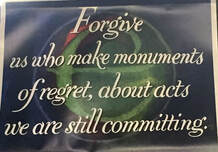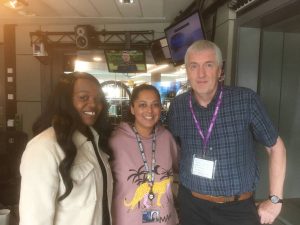Last Sunday’s service at Manchester Cathedral to commemorate the 200th anniversary of the Peterloo Massacre was a successful balance of penitence and lament, with celebration and re-commitment to justice and equality. It was developed from a suggestion from an MJR trustee, concerned that the churches complicity in the original tragic event and the consequences for legacy should be acknowledged.
On August 16 1819 when 60,000 people gathered at St Peter’s Fields in Manchester for a peaceful protest for democratic rights, the watching magistrates – several of whom were clergymen – panicked and ordered cavalry to charge and break up the crowd. What became known as the Peterloo Massacre saw at least 15 deaths and several hundred injuries, many of them life-changing. The churches mostly took the side of the authorities. This event was hugely influential politically and formative in the emerging radical character of a growing city. This character would include the dismissing of the church by the ordinary working people as being not for “us” but a part of “them”.
The legacy of such events is carried down the generations to the present day, so we felt this significant anniversary was a crucial time to make a statement. A large congregation, including a number of civic dignitaries, gathered to participate in and be challenged by prayers, art, poetry, testimony and music. Worth particular mention is poet Andrew Rudd’s “Rants, Whispers and Cries: Thinking of Peterloo” with its six “Beware-itudes” (depicted in banners by artist Stephen Rawe) which drew modern parallels with the tragedy of the original event. This all led up to an inspiring message about peace, peacemaking and the Prince of Peace from Rev Dr Deirdre Brower-Latz, principal of MJR partner the Nazarene Theological College, which was followed by a Holy Spirit-filled piece of improvised music from classical music ensemble ‘Epiphany’ which captured the moment and atmosphere superbly.

